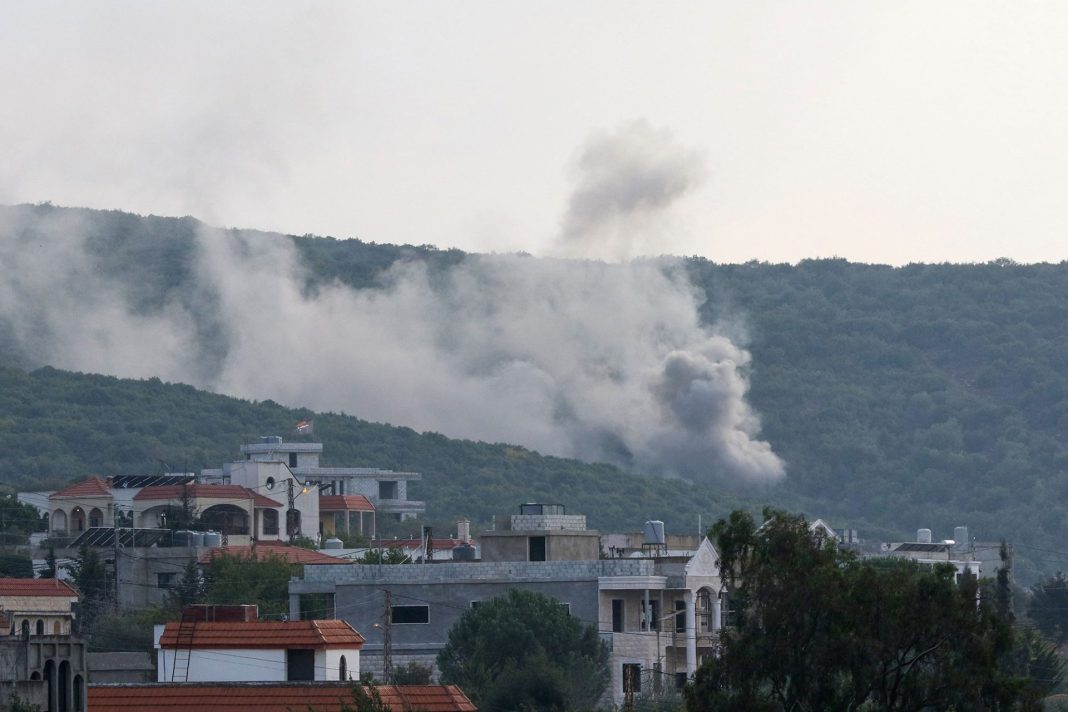About 50 projectiles were fired at the towns of Upper Galilee, which is the largest bombardment in northern Israel, according to the Israeli Army Radio.
Sirens sounded in Israeli towns adjacent to the Lebanese border, and direct hits were detected in homes in the Manara area, without casualties, according to the radio.
It also reported that “two anti-tank missiles were fired at a lighting pole in (the area of) Galilee Panhandle. There were no casualties, but damage occurred”.
Meanwhile, Lebanese Hezbollah said it targeted two infantry gatherings of Israeli soldiers in northern Israel. The group added the targeted gatherings were in Dhayra and Jal al-Alam areas.
Hezbollah also noted it targeted the Ein Zeitim Israeli military base with 48 Katyusha rockets in Israel’s northern city of Safed.
Hezbollah has been trading fire with Israeli forces from its stronghold in southern Lebanon after Israel launched an assault on Gaza last month in response to a Hamas attack on southern Israel.
The exchanges of fire along the Israel-Lebanon border mark the deadliest violence in the area since Israel and Hezbollah fought a month-long war in 2006.
Dozens of Hezbollah fighters and civilians have been killed in Lebanon, and several soldiers have been killed in Israel. Thousands more on both sides have fled shelling.
Until now, violence has largely been confined within a band of territory on either side of the border.
Israel has announced it does not want war on its northern front as it seeks to topple Hamas in Gaza. The United States has said it doesn’t want conflict to spread around the region, sending two aircraft carriers to the area to deter Iran from getting involved.
Hezbollah leader Seyyed Hassan Nasrallah has stated that the Lebanon front would “remain active”, and added there was “a quantitative improvement” in the pace of the group’s operations.
Israeli Prime Minister Benjamin Netanyahu has also warned Hezbollah not to broaden its attacks.
“This is playing with fire. Fire will be answered with much stronger fire. They should not try us, because we have only shown a little of our strength,” he cautioned.
Asked about what Israel’s red line was, Israeli Defence Minister Yoav Gallant said: “If you hear that we have attacked Beirut, you will understand that Nasrallah has crossed that line.”
Lebanon’s caretaker Prime Minister Najib Mikati, in an interview with Al Jazeera, stressed he was reassured by the “rationalism” of Hezbollah so far.
“We are preserving self-restraint, and it’s up to Israel to stop its ongoing provocations in south Lebanon,” he added.
Lebanon took years to rebuild from the 2006 war and can ill afford another one, four years into a financial crisis that has impoverished many Lebanese and paralysed the state.
Israel has long seen Hezbollah as the biggest threat along its borders. The 2006 war killed 1,200 people in Lebanon, mostly civilians, and 157 Israelis, mostly soldiers.
